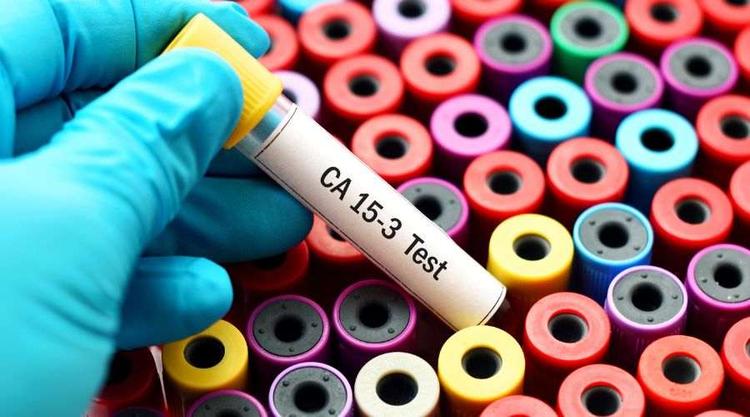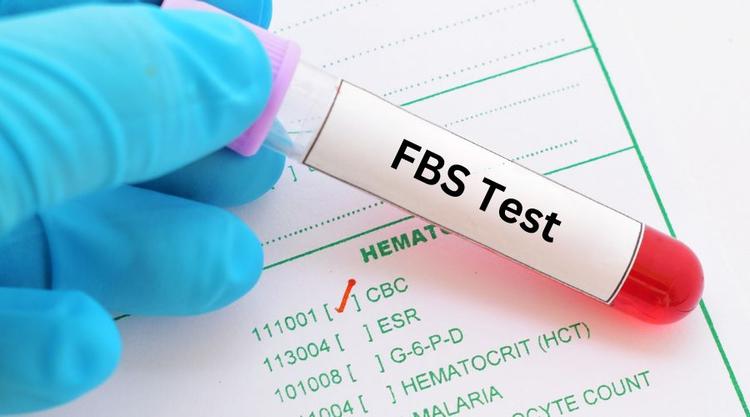Understanding Thyroid Profile Test Results- TSH, T3 and T4

Medically Reviewed By
Dr Divya Rohra
Written By Kirti Saxena
on Feb 3, 2024
Last Edit Made By Kirti Saxena
on Mar 18, 2024

The primary function of thyroid hormones is to regulate metabolism, heart rate, mood, and everything in between. The thyroid gland produces two main hormones: thyroxine (T4) and triiodothyronine (T4). When these hormones fall out of balance, it may cause symptoms like fatigue, sudden weight gain/loss, and irregular periods. Consult your doctor, and your doctor might recommend a thyroid profile test. The test measures the high TSH suggests Hypothyroidism, while low TSH points towards Hyperthyroidism. The test also measures the thyroid hormones T3 and T4. Understanding these test results might be challenging, but it’s important. Here in this article, we will explain how to understand your thyroid test reports. However, always consult your doctor to discuss your specific thyroid profile results and their implications for your health. Your doctor will interpret your thyroid test results based on age, medical history, and symptoms. They can provide personalized recommendations for treatment or further investigations if necessary.
Understanding the Role of Thyroid Gland
The thyroid gland is a small butterfly-shaped gland present in your neck. These thyroid glands help to regulate major body functions. Here is what your thyroid gland does-
- Metabolic control- The thyroid produces hormones, primarily thyroxine (T4) and triiodothyronine (T3), that control how your body converts food into energy.
- Body temperature- It also controls the temperature and influences how your body generates and retains heat.
- Energy Levels- T4 and T3 influence your energy production, impacting your fatigue levels, motivation, and overall vitality.
- Brain function- From birth to adulthood, the thyroid plays a crucial role in growth and development. In children, the hormone helps brain development and impacts cognitive function and learning.
- Bone health- The hormones also regulate bone health and ensure strong and healthy bones.
- Reproductive Health- During puberty, thyroid hormones play a crucial role in hormonal changes and the maturation of reproductive organs.
- Digestive system- It also regulates your digestive processes, impacting bowel movements and gut health.
The balance of thyroid hormones is essential to maintain optimal health. When your thyroid is overactive or underactive, it can cause a disturbance in physical and emotional symptoms.
How do you understand Thyroid Test reports?
Understanding thyroid blood tests is crucial for maintaining overall health. Let’s know what the TSH, T3, and T4 hormones indicate and their role in interpreting your thyroid test reports-
TSH hormone
TSH is produced by the pituitary gland in response to your body’s needs for thyroid hormones. High TSH levels signal the pituitary gland to stimulate the thyroid to produce more T4 and T3, indicating underactive thyroid function (Hypothyroidism). Low TSH levels mean overactive thyroid function (hyperthyroidism).
Importance of TSH
TSH is the most sensitive indicator of thyroid function and also helps in early diagnosis of thyroid disorders.
Normal TSH Range- 0.4 – 4.0 mU/L
Abnormal TSH Range:
High TSH: > 4.0 mU/L (indicates hypothyroidism)
Low TSH: < 0.4 mU/L (indicates hyperthyroidism)
Thyroxine (T4)
T4 is the main thyroid hormone, produced in large amounts by the thyroid gland. However, only a small portion of T4 is active.
Importance of T4
Thyroxine regulates your metabolic rate and influences how your body burns calories and uses energy.
It also impacts heart rate, blood pressure, and cognitive functioning.
Normal T4 Range: 4.5 – 12.1 µg/dL
Abnormal T4 Range:
High T4: > 12.1 µg/dL (may indicate hyperthyroidism)
Low T4: < 4.5 µg/dL (may indicate Hypothyroidism)
Triiodothyronine (T3)
T3 is a more potent but less abundant thyroid hormone, converted from T4 in various tissues. It directly interacts with cells, influencing vital functions.
Importance of T3- T3 regulates cellular energy production and impacts metabolism, body temperature, and organ function. It also plays a crucial role in fetal and early childhood development, affecting brain and bone growth.
Normal T3 Range- 70 – 100 ng/dL
Abnormal T3 Range
High T3: > 100 ng/dL (may indicate hyperthyroidism
Low T3: < 70 ng/dL (may indicate Hypothyroidism)
Symptoms That Indicates Abnormal Thyroid Functioning
Abnormal test results mean the TSH, T3, and T4 values are higher or lower than the normal range. It might indicate two types of thyroid conditions: Hyperthyroidism (overactive thyroid) and Hypothyroidism (underactive Thyroid). Here are the symptoms-
Hyperthyroidism (Overactive thyroid)
- Weight loss
- Anxiety
- Changes in bowel movements
- Muscle weakness and fatigue
- Sweating
- Trouble sleeping
- Rapid heartbeat
- Tremors
Hypothyroidism (Underactive Thyroid)
- Fatigue and lethargy
- Weight gain
- Depression
- Sensitivity to cold
- Constipation
- Mood swings
- Irregular menstruation
- Brain fog
- Dry skin
What Tests Measure The Thyroid Levels?
There are several blood tests to measure thyroid levels and assess how the functioning of thyroid hormones. These are-
- Thyroid Profile Test
- Thyroid Profile Free Test
- Total T3 (Triiodothyronine) Test
- Total T4 (Thyroxine) Test
- TSH Receptor Antibodies Test
- Thyroid Antibodies Panel (Anti TPO, Anti TG) Test
- FT4 & TSH 3rd Gen Panel
How To Manage Your Thyroid Levels?
You might understand how to read your thyroid reports and what TSH, T3, and T4 indicate in test reports. Now, the question is how to maintain abnormally high or low levels of thyroid hormones. Dont stress; here are some healthy ways to manage your thyroid levels-
- Healthy eating habits- There is no such proper diet for the thyroid. You have to focus on eating healthy and nutritious food. Focus on whole foods, fruits, vegetables, lean protein, and healthy fats while limiting processed foods, sugary drinks, and unhealthy fats.
- Manage Stress- Anxiety and stress can alleviate the symptoms of thyroid; therefore, focus on managing stress with healthy lifestyle stress-reducing techniques like yoga and meditation.
- Proper Medications- Consult the test reports with your doctor; based on thyroid type, your doctor may recommend the medications. For Hypothyroidism, levothyroxine is recommended, while hyperthyroidism can be treated with carbimazole and propylthiouracil.
- Regular exercise- Physical activity boosts your metabolism, regulates hormone levels, and enhances your mood. Try to aim for at least 1 hour of exercise daily.
- Regular Thyroid tests- Routine blood tests for the thyroid are essential to monitor thyroid levels and adjust medication doses. If you have a thyroid disorder, you must take a Thyroid profile test every 3-4 months.
Understanding Thyroid Test for Optimal Health
Maintaining optimal thyroid health is crucial to overall health, influencing everything from metabolism and energy levels to mood and heart function. Regularly monitoring your thyroid through blood tests helps detect any imbalances and ensure proper management. Always consult your test reports with your doctor for an accurate explanation of your test results and the right treatment. Your doctor might recommend additional tests based on your specific situation. By understanding your thyroid tests and proactively managing your thyroid health, you can optimize your well-being and prevent potential complications.



